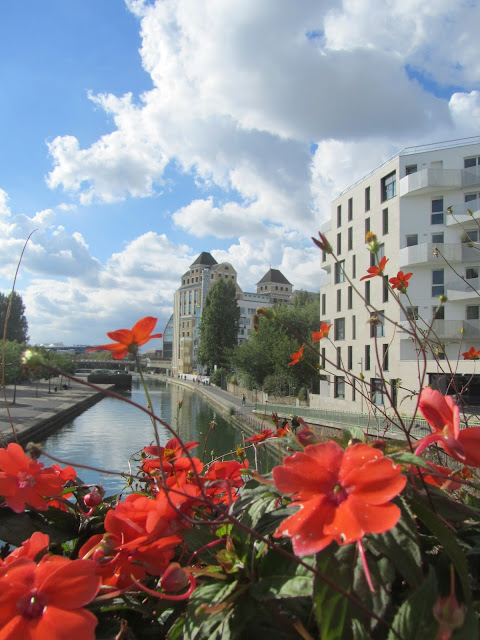I've been meaning to post about this place since I got here. I moved to Pantin on September 15th of this year. It's a suburb right on the northeast corner of Paris, and though it's still not exactly classy, it's definitely a few steps up from the Porte de Clignancourt, where I was living before. Pantin has the diversity without the dodginess, and there's something I really love about the feel of these neighborhoods.
On the day that I moved here, while making one of many trips on the tram carrying my life's possessions in suitcases and bags, I wrote this little blurb about the place:
In the bright September sunlight, I realize for the first
time that Pantin is something special.
The tram is making its harmless, wide-eyed caterpillar way along the neatly
trimmed grassy railway. The old
industrial canal, undoubtedly cleaner now than it used to be, laps along, lined
with jogging paths, trees, and endless, ostentatiously modern buildings, some
stacked at odd angles like children’s blocks, some tall and resolutely
rectangular, either white-washed, copper, plaster, aluminum, brick, or glass, asymmetry
inscribed within the symmetry, adorned with the inventiveness of a child. This building is a hodge-podge façade of
squares and rectangles; that one has a grid of interlocking lines like a maze;
and that one designed like a little
girl’s lunchbox, all yellow and flowery.
Alongside one stretch of the quiet little tramway, over the
fence, the heavier trains thunder by on their crisscrossing network of rails,
pounding out of Paris into the suburbs—a highway of industry evolving into a
highway of commuters. Something about
the railway wastelands outside of train stations pleases me—especially this
one—though I don’t know why.
Pantin is a very strange but successful species of
reinvented factory town.
But of course pictures speak louder than words. I've selected a few of my favorites, but if you want to see all of them, they're on my Google+ page here.
 |
| Weird Architecture Exhibit A: The local library |
 |
| A typical Pantin street (with ubiquitous people on scooters) |
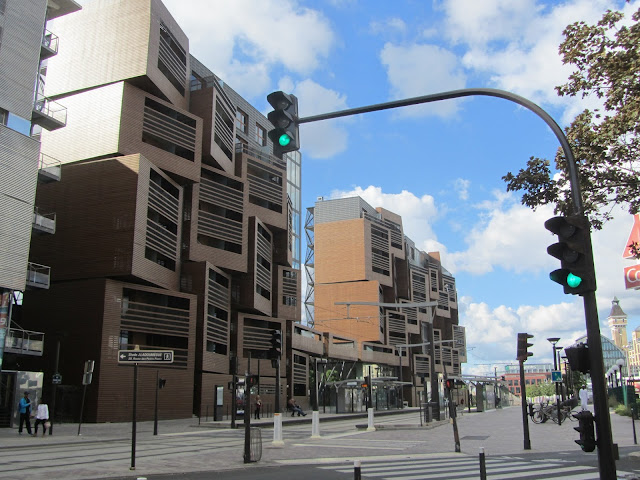 |
| Those are actually apartment buildings. |
 |
| Is anyone else thinking of Priscilla Queen of the Desert? |
 |
| Weird Architecture Exhibit B |
 |
| The Town Hall |
 |
| "Have a seat." |
 |
| "Don't mind if I do...." |
 |
| Weird Architecture Exhibit C |
 |
| Tram over the canal |
 |
| Weird Architecture Exhibit D (and girl writing by the water) |
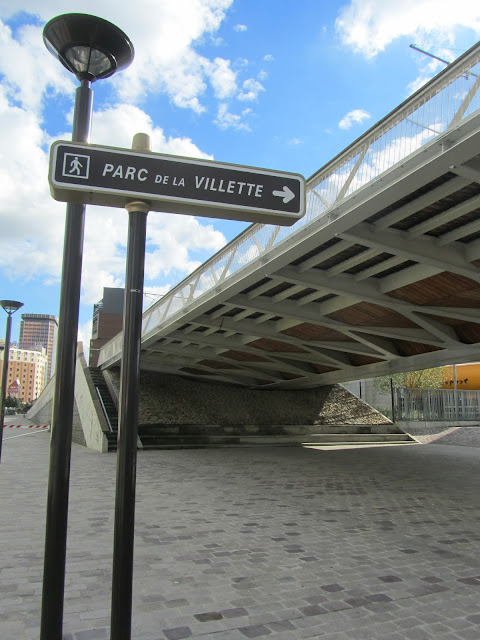 |
| I also live right next to the super-modern Parc de la Villette--but that's just on the other side of the highway, in Paris-proper. |
 |
| My wide-eyed caterpillar |
 |
| And the railway wasteland |
 |
| I just loved this house. |
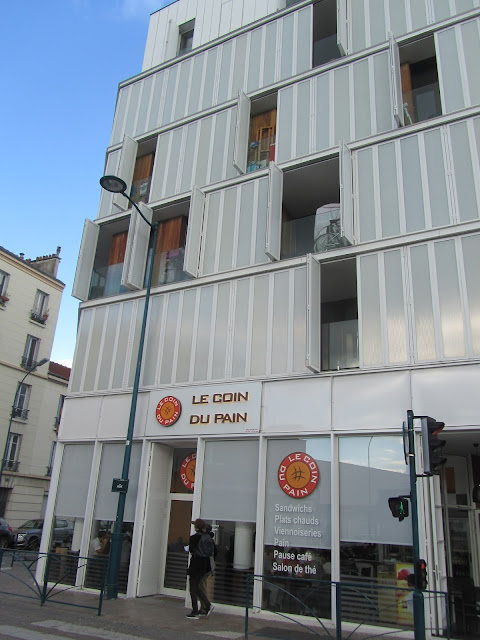 |
| Weird Architecture Exhibit E |
 |
| Weird Architecture Exhibit F.... |
 |
| ...and here's what it looks like close up. |
 |
| Don't know who these girls are, but I thought it made a nice picture. |
 |
| Typical little convenience store |
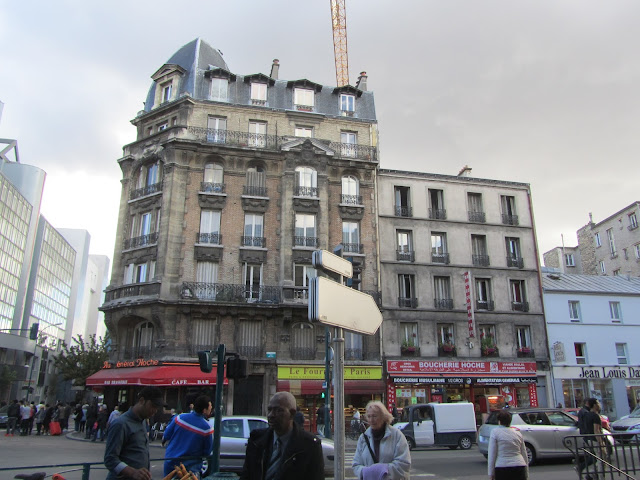 |
| Some old-school Pantin buildings. |
 |
| You can also see some old-school Pantin here...see the old sign for "Vins - Liqueurs"? |























